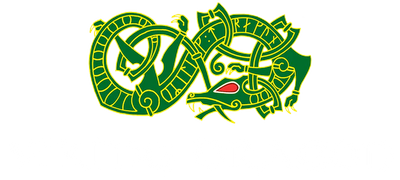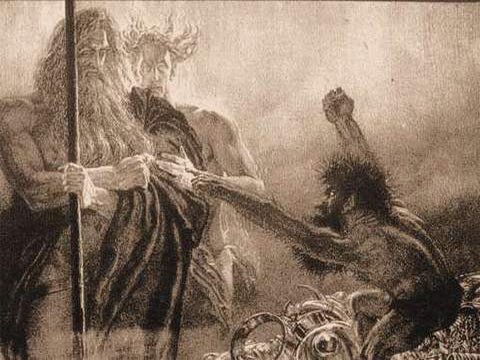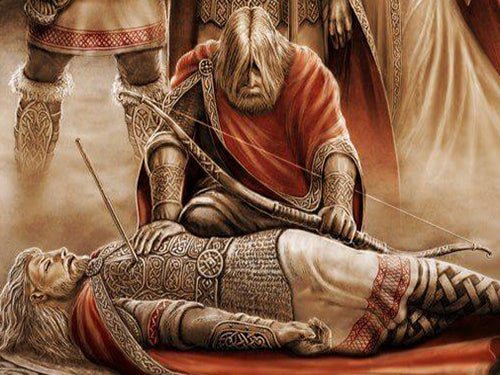
'Balder’s Death' described how the trickster god Loki duped the blind god Hoder into killing Odin and Frigga's son Balder, the fairest of the gods. Balder’s death grieved most of his fellow deities, who missed his courtesy, his beauty, and his wisdom, but it grieved Balder’s parents most of all. Odin remembered that the wise-woman who foretold Balder’s death had also foretold the destruction of the gods, and he felt doom coming upon them. Frigga mourned her son.
Frigga promised all her love and favor to any god who would ride to Hel, look for Balder’s spirit there, and offer a ransom payment for Balder to the fierce goddess Hel who ruled, and gave her name to, the cold world of the unhappy dead. Odin’s son Hermod the Bold undertook that perilous errand. Odin gave Hermod his eight-legged horse Sleipnir, and Hermod rode away alone.

Meanwhile the other gods prepared Balder’s funeral. They built a pyre inside Hringhorni, the world’s greatest ship, but when they went to push the ship out to sea, they could not move it. At last they sent for the marvelously strong giantess Hyrrokkin, who rode into Asgard on the back of a wolf bridled with a serpent.

She did not come alone. The gods and the giants had long been at war, but many of the giants also came in peace and in grief to mourn Balder’s passing. Hyrrokkin pushed the ship out into the water, and the world shook at its moving. Thor, angry in his grief, wanted to strike the giantess dead, but the other gods restrained him.

They laid Balder in the ship and laid rich gifts around him; and when Nanna, Balder’s loving wife, saw him there, her heart burst with grief and she was laid beside him. Odin leaned over his dead son and spoke in his ear, and no one ever knew what he said. Then the gods lit the pyre, and the ship burned to the water.

Meanwhile Hermod rode through dark cold valleys for nine days and nights until he reached Hel. He rode over Hel’s threshold, which is called Pit of Stumbling, and into her hall, which is called Sleet-Cold, and in that foul place he saw Balder and Nanna. They spent that night speaking together.

In the morning Hermod went before Hel and pleaded with her to let Balder go, saying that the gods and all things wept for him. Now Hel was a grim goddess, and her father was Loki, who had contrived Balder’s death. At last she said that Balder might go free if all things, dead and living, truly wept for him.

Hermod made ready to depart, taking with him gifts and gracious words from Balder and Nanna. When he returned, the gods sent messengers through all the worlds asking all things to weep for Balder.
Gods and mortals alike wept as bidden. So did the earth, the stones and the trees. The messengers set out for home, believing that Balder would be redeemed from Hel. But on their way back they met a giantess who called herself Thokk. They asked her, as they had asked all others, to weep for Balder. Thokk laughed and flatly refused to weep for the lowborn god whom she had not loved and whom she would gladly see in Hel forever.
As the messengers rode back in despair, knowing that Balder would never return, someone realized that 'Thokk' was no giantess; rather, she was Balder's murderer Loki, in disguise.
The gods punished Loki horribly, binding him with the entrails of his own murdered son, setting a serpent over his head to drip scalding venom onto his face, and leaving him there until the world's end. It may be that Loki wept then, but if so it was for himself and not for Balder.

Prophecies hinted at a time after the destruction of the gods when Balder might return to rule a world renewed. But the gods who had loved Balder knew they would never see him again.



